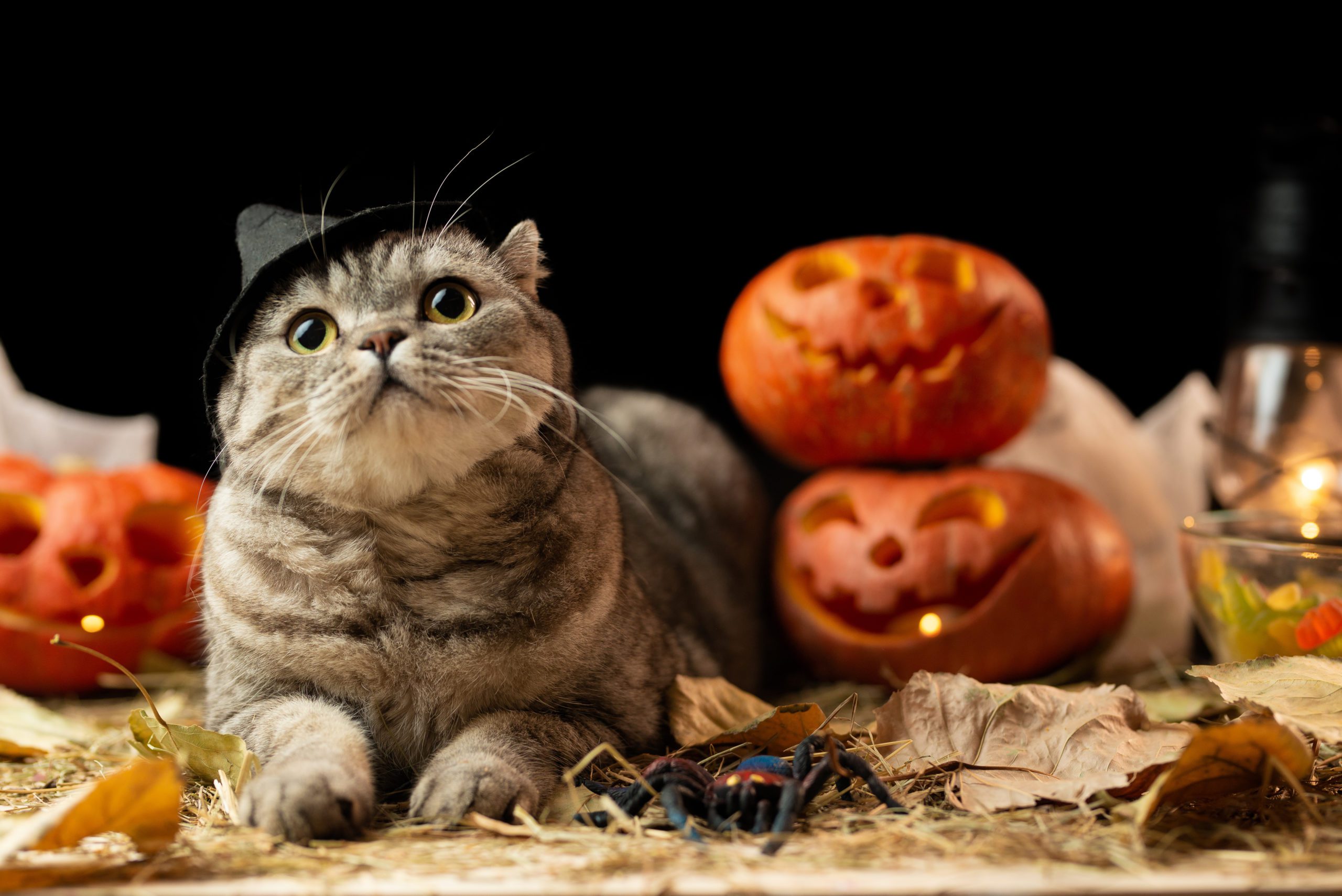Halloween, Candy, and Pets
Halloween night is quickly approaching, and just like the fourth of July, it’s another holiday when our four-legged friends must be monitored closely in order to be kept safe.
For the last couple of years, many people missed out on the beloved tradition of dressing up and going door to door for some sugary treats. So naturally, we’ll all be making up for lost time — as we should — just as long as we keep Halloween pet safety in mind.
Here are some Halloween pet hazards to be aware of:
- Chocolate/Candy
- Sugarless Sweets (xylitol)
- Candy Wrappers/Foil
- Raisins
- Liquid Potpourri
- Glow Sticks
- Open Flames
- Masks/Costumed Children
- Loud Noises
Halloween Pet Safety Tips
Don’t let those common hazards spook you out of celebrating! Consider practicing these Halloween pet safety tips so you can still enjoy the night, while keeping your furry friends comfortable, happy, and out of harm’s way.
Keep treats out of reach. Halloween candy and pets do not mix well. Chocolate, sugary, and sugar-free treats are toxic to animals even in small amounts, so it’s best to keep any goodie-filled bags out of reach.
Keep pets confined/indoors. Constant doorbell ringing, doors opening and closing, plus costumed visitors can be highly stressful, so it’s best to keep your critters safely crated or tucked away in a room where they won’t be disturbed by all the excitement. If your pet loves to explore, even on Halloween night, make sure a responsible adult is present to handle them. Kids may struggle to juggle a leash and a candy bag.
Keep glow sticks away. These have become a popular accessory for trick-or-treaters looking to stay lit up while exploring the neighborhood at night. However, there is a temptation for pets to chew on them. Although the interior gel is often non-toxic, it can still make your pet very sick.
Keep pets away from flames and decor. Reduce the temptation for pets to get up close and personal with Halloween decor. Pets could get burned if they come in contact with an open flame or sick if they consume things like potpourri. Additionally, things like decorative spider webs can cause a blockage if swallowed.
Keep pets out of costumes (unless they love it). Not all pets love dressing up, but nobody knows your pet better than you. Some pets thrive, and some pets freeze when put into clothing. Gauge your pet’s comfort levels in the costume and go from there. If they tolerate a costume, make sure it does not restrict the pet’s ability to move, see, hear, or breathe freely.
Keep your pet’s I.D. updated. Make sure your pet’s microchip, ID tag, and other documentation are all up to date with a current address and phone number well ahead of the holiday season.
When it comes to Halloween cat safety, practice it just as you would for dogs. Avoid things like candy, frightening costumes, loud noises, open flames—really anything that might spook your feline friend. There is, however, one additional hazard for felines that you need to be aware of come Halloween night— superstitions.
Somewhere down the line, black cats became a symbol of bad luck and a Halloween favorite, as many people have come to believe that crossing paths with one is an omen of misfortune. Due to these silly superstitions, many black cats may end up missing on Halloween night due to pranks or other reasons, so we advise you to keep all cats indoors, even those who typically spend most of their time outside.
For questions or concerns regarding Halloween pet hazards, contact us at any one of our .
To ensure Halloween pet safety, take a moment to make note of these important numbers:
- ASPCA Animal Poison Control Center Phone Number: 888-426-4435
- Pet Poison Helpline: 844-520-4639
Wishing you and your loved ones a safe and happy Halloween!


